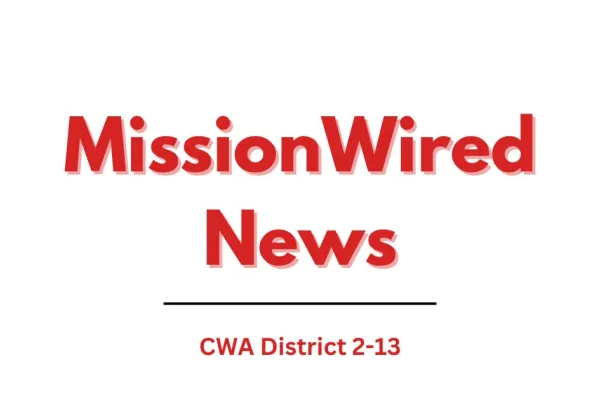Red Cross: National Bargaining Report 1

NATIONAL BARGAINING REPORT: May 14, 2018

Photo: Union members and staff from nine national unions stand together! May 8-10 in Washington, D.C. we presented our union proposals to the American Red Cross.
UNION MEMBERS PRESENT PROPOSALS
The union coalition is composed of local unions from AFSCME, AFT, CWA, IBT, IUOE, SEIU, UAW, UFCW, and USW. Our union bargaining team is: Raven Hall (Chief Negotiator); Gary Gorski (AFSCME); Ann Twomey (AFT); Erin Bowie/Jaytricia Tremel (CWA); Nina Bugbee (Teamsters); Kathy McCormick (SEIU); Ellen Wallace (UAW); Dale Parker (UFCW); and Darryl Ford (Steelworkers).
At our first session, May 8-10, over 35 Red Cross bargaining unit employees (union members) inCollect ions, Manufacturing, Donor Recruitment, Lab, Hospital Services, etc., union leaders, and unionadvisers joined the session to share personal experiences and expertise in various areas of blood collection
and processing.
We are standing strong together to make sure that Red Cross listens to our experience and our ideas so it can become an even better place to work!
Bargaining team members from the Coalition of Red Cross Unions presented proposals to American Red Cross management to improve worker and donor safety, improve worker retention, decrease workforce turnover, and improve employees’ work-life balance.
By working together nationally over the last three years, we have made the Red Cross become an even better organization. Respecting and listening to the people who do the work every day is a requirement for success of any organization. We know how to run efficient and productive blood drives. Wage increases, improvements in cross-training, PTO improvements, and lowering worker injuries are key issues we are fighting for.
Management opened negotiations proposing more restrictive language on guaranteed hours, rest periods for Collections staff on drives, eliminating requirements for advance notice of changes, and other issues that do not address the national problems of high workforce turnover, understaffing, and low employee morale. We openly objected to these proposals, and to management trying to use national bargaining to address local-specific issues.
Our union coalition proposals address four important issues: (1) improving work-life balance; (2) sustainable wages; (3) preventing workplace injuries; and (4) improving employee morale. We want to maintain affordable and comprehensive healthcare coverage, to explore retirement options, and to include language in the national agreement to address issues for bargaining unit employees in other functions beyond collections. The union’s proposals include:
• Improving work-life balance to spend time with families and plan in advance for special events.
We proposed improvements in scheduling practices to reduce late end drives, increase core holidays and paid time off accrual rates, and provide more opportunities to request paid time off throughout the year. We also want to codify in the National Addendum, the two consecutive days off initiative implemented by the joint labor-management committee - Scheduling Advisory Group (SAG).
• Pay, schedules, and hours that we can count on. It is difficult to anticipate paycheck amounts and plan for the future when our pay goes up and down so drastically. The union presented proposals to address problems of unpredictable hours, cancelled drives, and payroll errors. In some place, full-time workers are not paid enough to live or support their families. We presented proposals on guaranteed work hours, wage increases, improvements to premium pay and more.
• We proposed changes to the 45/45/45 initiative and the Mobile Unit Assistant/Collection Technician cross-training program. High injury rates due to employees’ lack of driver/lifting or phlebotomy experience, combined with training costs for many new hires costs money. We believe Red Cross can improve workforce turnover and thus save money by improving employee safety and health, making cross-training voluntary (rather than mandatory), implementing higher late-end drive and turnaround time penalty pay, and penalties for managers failing to provide adequate rest breaks.
• Respecting and rewarding experienced employees is a good investment. Our proposals address retaining experienced and dedicated union employees include, such as longevity pay for employees based on years of service and dedication to the organization and its mission. A uniform allowance would allow staff to buy properly-fitted uniforms so that we feel confident about how we present ourselves and the Red Cross to the public/our donors.
The Red Cross still faces a challenging blood product environment, but it is in a better place than it was three years ago when employees conceded many benefits in order to ensure Red Cross’ financial stability. Through these negotiations, our nine national unions are standing together again, this time to challenge the Red Cross to examine the money that is wasted in poorly executed initiatives/mismanaged blood drives, and reinvest that money back into its employees.
THE NEXT NATIONAL BARGAINING SESSION IS MAY 22-24
We need help collecting and sharing information in all of our workplaces. Talk to your Local Union Representative or Bargaining Team member to find out how you can get involved!
Read the full bargaining notice flyer:
MissionWired First Contract Bargaining: Report #4


